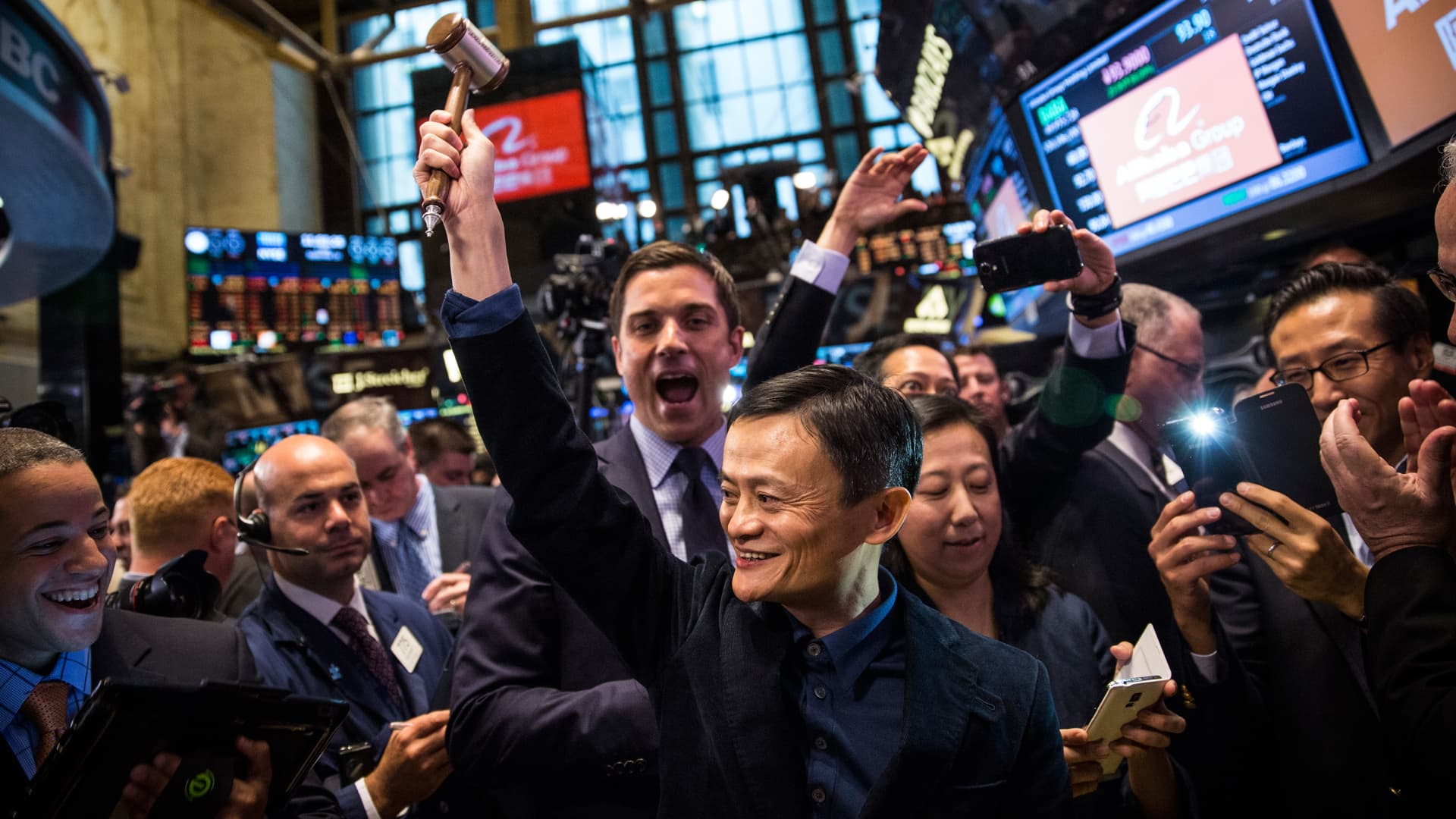
Uncertainty is rising for the giant emerging market class of Chinese stocks. Morgan Stanley has decided to take a break, downgrading MSCI China to equal weight while recommending a few consumer and industrial names. That contrasts with a growing number of calls to buy the dip . “Lack of quick follow-through of actionable easing measures could lead to a retreat from the early recovery in sentiment,” Morgan Stanley equity strategists Laura Wang and Fran Chen said in an Aug. 2 note. Chinese stocks have rallied modestly over the last two weeks. Since the July 24 Politburo meeting of top Chinese leaders, different levels of government have stepped up announcements to support the property market and consumption . The Politburo meeting signaled policy easing, but outstanding issues — of debt, property, jobs and geopolitics — need significant improvement for sustainable inflows, the Morgan Stanley analysts said. “Our data shows that as of end June, all the incremental inflow back into Chinese equity market from different global mutual funds had chosen to leave,” the analysts said. All that adds to growing caution over China. Ark Invest’s Cathie Wood has sold off China investments in a key fund , while Warren Buffett has reduced holdings in Chinese electric car giant BYD . U.S. politicians are also turning up the heat. The U.S. House Select Committee on the Chinese Communist Party in the last week said it sent letters to asset management behemoth BlackRock and index giant MSCI in a probe over their connection to U.S. investments in blacklisted Chinese companies. It’s not clear what restrictions, if any, will be put on such investments. But word is the Biden administration is mulling an executive order to ban certain investments as well. China’s growth prospects So far, the driver of investors’ negative sentiment on China is not sanctions but its disappointing economic growth, said Liqian Ren, leader of quantitative investment at WisdomTree, which has a China ETF that excludes state-owned companies. CXSE YTD line YTD performance for the WisdomTree Trust China ex State Owned Enterprises ETF (CXSE) For WisdomTree’s clients investing in China, many are “making a long-term contrarian trade, in the sense [that] in the longer term China is still going to be quite formidable in terms of broad technological progress,” Ren said. “Many of the clients still believe China can grow above 4% in the next decade.” Second-quarter gross domestic product missed expectations but still posted 6.3% growth from a year ago. Youth unemployment hit a fresh record, while real estate investment continued to fall. Wall Street investment banks changed their China forecasts multiple times this year, with JPMorgan adjusting it six times. Morgan Stanley has so far only changed it once this year: a cut in July to 5%. For China stocks, the investment bank had set an overweight call on Dec. 4, 2022. Since then, the Morgan Stanley analysts pointed out, MSCI China and Hang Seng have respectively returned 8.6% and 10% — in line with the MSCI emerging markets index’ 9.6% return as of Aug. 1, 2023. The analysts expect the Chinese stock market volatility to remain relatively high due to swings in investor hopes and disappointments about government policy. “We believe the right approach is to move to the sidelines, taking advantage of the latest sentiment improvement, and wait for a better entry point down the road,” the report said. Forthcoming details from earnings In the meantime, big corporate earnings in the next few weeks could shed light on the business environment in China. Alibaba is set to release earnings on Aug. 10. Tencent and JD.com are both set to report the following week, while Baidu is due to release results on Aug. 22. Jack Ma’s Alibaba has been the poster child for a surge of U.S. interest in Chinese investing. Now, the stock trades near where it was shortly after its IPO in 2014. Increased regulatory scrutiny on top of an economic slowdown have put a pause on big U.S.-backed venture capital flows into Chinese companies . Alibaba is still part of Morgan Stanley’s China/Hong Kong focus stock list. And despite their downgrade of Chinese stocks, the analysts added two mainland-traded A shares to their focus list. Jonjee Hi-Tech – Thanks to management and board changes, the condiments company’s sales are expected to pick up to double-digits in coming years from 5% in the last three years. Shares have about 28% upside to the analysts’ price target. YTO Express – The express delivery company is one of the few in the industry with healthy free cash flow and a strong net cash position, the analysts point out. Shares have about 17% upside to Morgan Stanley’s price target. Outside of specific names, however, a broader China investing thesis can be difficult to establish based on only a few short-term signals. In its latest report, Morgan Stanley analysts also turned overweight on India. WisdomTree’s Ren doesn’t expect U.S. sanctions on China to stop. At the same time, she pointed out that “China can also continuously develop because China is probably right now the only emerging country with broad technological advance across industries.” The WisdomTree China ex-State-Owned Enterprise Fund (CXSE) is down by more than 3% so far this year. Its top holdings are Alibaba, Meituan and Ping An Insurance Group . Looking ahead, Ren doesn’t expect significant stimulus, based on her read of top level policies and how entrepreneurs are thinking about investing. And she doesn’t think China is in an extreme situation similar to during the Covid-19 pandemic or in 1978 when, she said, lack of change would put China into a crisis. “Generally,” Ren said, “I don’t think China is in a crisis.” — CNBC’s Michael Bloom contributed to this report.







